Sitting in his swanky offices on Cavendish Square, complete with Mini bonnet signed by the 2003 World Cup-winning rugby team, the chairman of Prestbury Investments, Nick Leslau, has just acquired the 55-hotel Travelodge portfolio for £196.2m on behalf of the Secure Income REIT he advises.
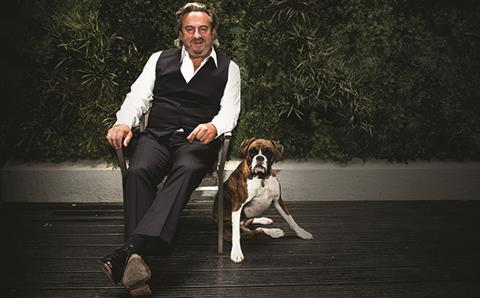
It is not the biggest deal he has done or the most significant, but it does vindicate his confidence in the market in the wake of the EU referendum. And, he says as two-year-old boxer dog Yogi slumbers nearby on the sofa, it shows there are big wins on offer for those prepared to play, which he and Prestbury chief executive Mike Brown most definitely are, even in the most challenging of markets.
Leslau joined forces with Mike Slade’s former number two to launch Max Property in 2009, floating the company in the depths of the global financial crisis in what was the biggest IPO in Europe at the time.
“That’s how crappy capital markets were in 2009,” he recalls.
“People forget that after Lehman’s weekend, we were genuinely worrying whether the ATMs would have any cash. My kids say: ‘What do you mean?’ The enormity of what happened is lost on the new generation. Those who have been in property for the last five or six years have never known anything but a bull market.”
Taking back ownership
If people understate how bad things got back then, many overstate how bad things are now, says the outspoken Brexiteer. “I was quite strongly Brexit. My beef was dislocation from ownership of our parliamentary democracy and I think European Parliament is essentially inherently corrupt. We need to take ownership back and I’m delighted. I’m even more delighted that the hysteria being pedalled pre-Brexit and even pro-Brexit has now diminished to a trickle.”
This is not to say there won’t be a market slowdown. “The 30-year bond rate has shrunk from where it was just a few weeks ago. That means that the yields you get on property are starting to look attractive,” Leslau reasons. “Something’s wrong. Either bond yields are too low or property yields are too high. In my view there will be a correction.”
Snapshot: Nick Leslau
In 1982, Leslau ditched his German degree for estate management on the advice of friend and businessman Chris Simpson. He joined a small ground rent company started in 1982 by Sam Rosen called Burford Estate Property Company, which was floated in 1986 for £8m. The pair sold the company a couple of years later to Nigel Wray, who has been Leslau’s partner ever since, for £57m. At the time, Leslau was 26 and the youngest CEO of any quoted company.
“I didn’t know anything about anything,” he admits. “But we had ridden this bull market. Nigel and I then built the company over the next 10 years into a £1bn company. I spent 10 years deal doing with the likes of Franco Sidoli, who I’d met early on in the Burford days. We used to fight like husband and wife but we are like brothers. We did and do lots of deals.”
The deal that stands out is not a property deal, however. It was buying the rights to 600 Enid Blyton books and Noddy. “Not that I know anything about intellectual property, but it is very much like property. You own the freehold and you lease out or license out the commodities. I love that deal.”
He won’t be drawn on how much of one or when, but insists it will have little to do with the vote: “Brexit is a bit of a side show. The correction was starting six to 12 months before the vote happened.”
He points out that the open-ended funds have not, on the whole, been distress sellers. “In many cases, properties were sold at premiums to book value so the force of capital and the market was greater than the people observing the market,” he says, alluding to some of the more doom-mongering analysts. “I think the market’s been incredibly robust.”
And it will continue to be, believes Leslau. “I’m more bullish now [than immediately after the vote]. People say investment decisions are being slowed down. That’s because the global economies have slowed down. We’re going through a normal economic cycle.”
Like most property Brexiteers, Leslau was swayed by the financial and political arguments. The fact much of the rest of the country voted on immigration grounds is not lost on him, but he is confident common decency will win out. “There is racism. There is antisemitism. It sits below the surface. However, I think the UK can absolutely sift that stuff out. We’re an incredibly tolerant society.”

He is not so sure about the rest of Europe. “When I look at France, it’s a different feel; it’s a different problem. Take the Nice attack. The description of Nice by commentators would have made me laugh were it not such a tragic event. People describing the idyllic seaside town of Nice - if you go back three streets, it is desperate.”
Given the turbulence elsewhere, one thing he is not worried about is a major exodus from the City. Certain financial functions will migrate, he concedes, but financial passporting will be granted because EU countries need the UK as much as it needs them. Indeed, Brexit will enable the UK to avoid many of the issues that have beset mainland Europe, he argues.
“I’m happy to be a Brexiteer because Europe has these problems permeating its society. Contextually, Brexit is a little bump in the road of what is a much bigger issue. It will be muddled through and our children and children’s children will benefit. I don’t want to be part of this European experiment that’s failing in front of our eyes.”
Top deal
It was such bullishness that led Leslau and Brown to strike the Travelodge deal as others were sitting on their hands: “The Travelodge deal stood head and shoulders above the rest. We didn’t go out to say let’s buy hotels - we are opportunistic. We will go where the deal is. It just ticks all the boxes.”
For one, Secure Income REIT “knows and loves budget hotels”, he says. “The beauty of the budget hotel sector is that it’s been incredibly resilient through bad times because people tend to trade down.”
Leslau has made a career out of opportunistic plays and knowing exactly when to buy and sell. When he and Brown sold Max Property to Blackstone in 2014 for £448m, commentators said he was calling the top of the market, a claim he disputed. However, he admits he is happy to have sold when they did.: “We were getting into risk territory and at the end of the day, we are quite a conservative bunch.”
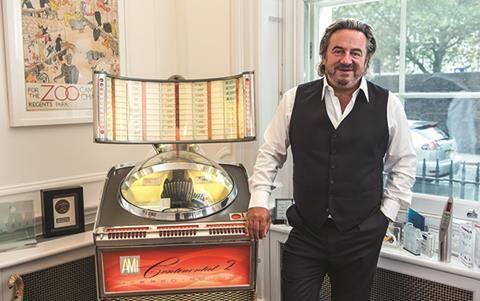
Always looking for an angle, today, Leslau is inevitably interested in alternative markets. There are now 81 assets in the Secure Income REIT portfolio, which include properties let to Ramsay Health Care as well as attractions such as Alton Towers, run by Merlin Entertainments.
“The upside with alternatives is that the investor space at the large end of the scale is not terribly well populated and therefore the higher the yields you’ll achieve for fundamentally very sound key operating assets,” he explains.

He is also looking for deals that will be dividend enhancing and will enable it to de-gear from the current level of 56% to between 40% and 50%. With the overall portfolio now at £1.7bn post Travelodge, he also wants to keep growing.
“We’re very ambitious and want to grow this into a substantial REIT,” he says. “In all my years in property, I’ve only been interested in NAV per share: how much money can we make for shareholders?
We’re very ambitious and want to grow this into a substantial REIT - Nick Leslau
“I’ve never been interested in empire building. I’m not interested in empire building in this instance, except in the sense that the bigger we get, the lower our gearing, the more risk diversified we become, the better our access is to cheaper capital and the wider our appeal is to our investor universe. In REIT world, bigger is better.”
Leslau has no ultimate figure or lifespan for the REIT in mind. “I hope it will go on for a very long time, with or without me, Mike or Sandy [Gumm, our CFO]. I hope I’m a shareholder when I pop my clogs, but who knows. If someone came along tomorrow and bid a 50% premium to net asset value, then as always, it’s up to all shareholders, not me.”
No one has approached him, he claims, adding that he wouldn’t entertain offers anyway given the growth trajectory the business is on. “Boring is the new sexy,” he grins. “These long-term secure income streams rising with absolute transparency and predictability are brilliant.”
‘Good reception’
Leslau is understandably reluctant to divulge what he is looking at now. “There’s always scope to do deals,” he says. “We’ve had an incredibly good reception so far from the shareholders that we’ve seen. One of them said: ‘how do you top this?’ The answer is: ‘I don’t know’, but the most exciting thing is the deal we don’t yet have and that’s why we’re paid the bucks to go and find the next one.”
This is where being bigger helps. “Where we’re flying, we want the air to be quite thin and that means we can go to £300m or £400m. The bigger we are, the less likely we are to confront competition from the likes of M&G and L&G.”
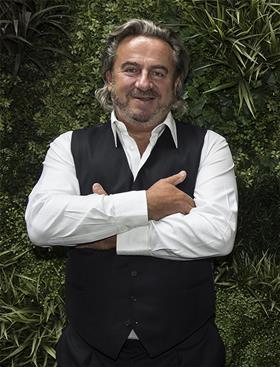
However, he is not looking to widen his net beyond the UK. ” I am a fundamentalist when it comes to investment, because I think it’s hard enough knowing what’s going on in just one country - the idea I could go to Manhattan and compete with people who’ve been doing this their entire lives is as ridiculous as them coming to London. I’m not that arrogant. We tend to stick to our knitting geographically.”
That’s not to say if a big sale-and-leaseback deal came along he wouldn’t take a view; similarly if he had £5bn or £10bn of assets and felt he was running out of capacity in the UK.
Property has become increasingly commoditised, which is a shame
It is not inconceivable. Leslau estimates that over his career he has transacted £10bn of property. He is quick to credit his team, which he clearly regards as a cut above the ‘talent’ elsewhere.
“I think property has become increasingly commoditised, which is a shame,” he says. “The people who are in the property game today are too spreadsheet orientated. The investing we like to do is a bit more intuitive. It doesn’t fit a particular convention. I think the opportunities are probably in the slightly more obscure properties. Mainstream, forget it.”
As for the wider challenges faced by the property industry, Leslau believes the persistent problem of double dipping is finally being addressed. “My personal view is that there was a moment in time where you saw such enormous volumes of investment that it became irresistible and I don’t think the world is like that now.”
A more pressing issue, he believes, is the shortage of valuation experts able to handle substantial portfolios or properties. He would also like to see the SDLT “fiasco” resolved and a review of the non-dom rules, which he argues position the UK “completely asininely as slightly anti-overseas money”. Fortunately, he thinks we have a government that can deliver.
Conservative concerns
He does have concerns, though. “I’m genuinely worried that even without an effective opposition the Conservative Party could tear itself apart, with the Brexiteers and the right and left trying to decide what Brexit really means claiming the mandate of the people. That too will be resolved, but it will be a bumpy road.”
Prior to Theresa May’s announcement that she planned to trigger Article 50 by March next year, Leslau was warning that Brexit would take “six years minimum”. He has not changed his tune. “The Lisbon Treaty took about nine years, so I would be surprised if it took much less than that even if Article 50 is triggered early next year,” he argues.
Regardless, he is not worried about the outcome: “The Germans have to trade with us. The French have to trade with us. We have to trade with them. Therefore we will find a way around it. What I’m thrilled about is politics is alive.”
Meanwhile, he is still basking in the glow of the Travelodge deal. “The placing was more than two and a half times oversubscribed by major UK institutions on the whole, which was very exciting, and our share price is up some 20% from the pre-announcement level, so in view of what’s going on elsewhere in the markets we are pretty chuffed. On to the next one!” And the next…























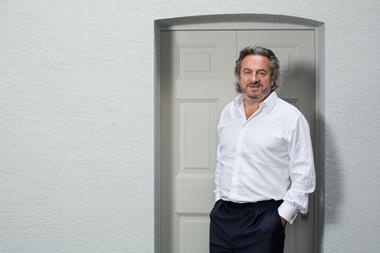
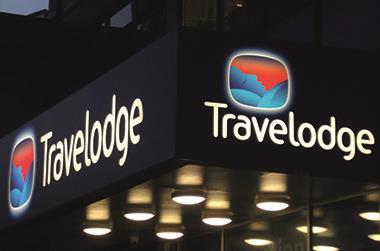
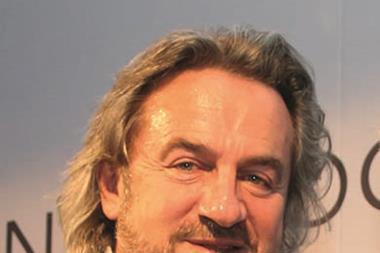

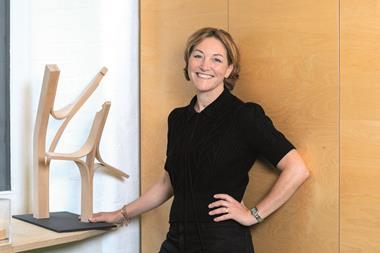
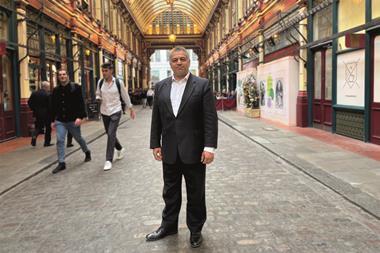
No comments yet